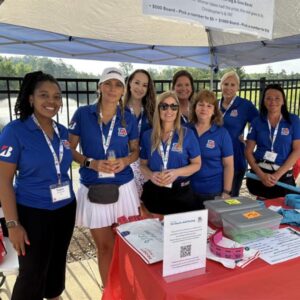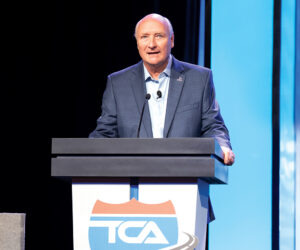WASHINGTON — United Parcel Service has applied with the Federal Motor Carrier Safety Administration for an exemption from two provisions of the entry-level driver training (ELDT) final rule published in December 2018 — (1) the requirement that a driver training instructor have two years’ experience and have held a CDL for two years as set forth in the definitions of behind-the-wheel (BTW) instructor and theory instructor and (2) the requirement to register each training location for a unique Training Provider Registry (TPR) number.
The implementation date of the final rule in February 7, 2020.
UPS told the FMCSA that it has a driver training school (DTS) that trains its employees to become driver instructors, describing the DTS as a success because it has trained hundreds of driver instructors, many of whom did not have previous CDL experience.
UPS said its DTS instructors have on average 20 years of UPS experience, hold a CDL of the same (or higher) class and with all endorsements necessary to operate a CMV for which training is provided, have completed the DTS program, have maintained their DTS certification through quarterly additional training, and are employed by UPS as supervisors or managers.
UPS said the DTS conducts an eight-week program designed to train supervisors and managers in UPS’ long-haul operations to deliver driver training to drivers at their “home” worksites with the curriculum covering all the topics set forth in the new ELDT rule.
The UPS instructor trainees are assessed in progress reviews at days five, 10 and 15, and a current DTS instructor monitors the quality of the training and trainee progress.
According to UPS, the DTS program produces highly qualified driver instructors. Additionally, all UPS driver instructors are required to be recertified every 90 days to demonstrate the same skill level shown for their original DTS certification. UPS further performs internal quality assessments to validate that instructor skillsets are maintained throughout the organization.
In its request for exemption, UPS states that if it must comply with the instructor qualification requirements in the ELDT rule, it would not be able to use 25% of its current certified driver instructors, at minimum. Looking ahead two more years, that number would likely increase to 50% because of its changing workforce. UPS sees an increase in growth through volume demand, as well as an aging workforce that will lead to retiring CDL drivers and certified driver instructors. Without an exemption from the [ELDT] trainer requirements, UPS’s inability to use its current driver instructors will impede substantially its ability to meet the demand for new drivers, the request said.
UPS said that the exemption is needed to meet union contractual requirements, as under its collective bargaining agreement with the International Brotherhood of Teamsters (Teamsters), six current UPS employees must be provided with a promotion opportunity for every new hire.
As for the requirement to register each training location for a unique TPR number, UPS said training for new drivers takes place in many locations.
In each location, instructors who have been trained in the same way pursuant to UPS’ DTS program will use a common FMCSR-compliant curriculum developed at a corporate level.
UPS is operating a single training program in multiple locations. UPS said that it needs this exemption because of the significant administrative burden that would result if it had to register every UPS location at which a new driver could be trained. In addition, having separate TPR numbers for multiple locations offering essentially the same training could create internal confusion for UPS, drivers, and the agency. UPS new driver training may occur at as many as 1,800 separate locations a year. UPS estimates that the cost to register all of these locations would be substantial, and that it would incur additional costs to keep track of the various registrations, file updates, and new driver registrations.
UPS offered its “train the trainer” program within its DTS to assure an equivalent level of safety. According to UPS, its DTS produces highly skilled instructors who know how to drive tractor-trailers and how to teach others to operate tractor-trailers in a safe manner. UPS believes that graduates of its DTS training program are better prepared to impart knowledge and skills on new drivers than someone who has had two years of driving experience.
The FMCSA is requesting comments on UPS’ request.
To submit comment online, go to www.regulations.gov and put the docket number, “FMCSA-2019-0139” in the “Keyword” box, and click “Search.” When the new screen appears, click on “Comment Now!” button and type your comment into the text box in the following screen. Choose whether you are submitting your comment as an individual or on behalf of a third party and then submit.
Deadline to submit comments is July 19.
Lyndon Finney’s publishing career spans over 55 years beginning with a reporter position with the Southwest Times Record in Fort Smith, Arkansas, in 1965. Since then he’s been a newspaper editor at the Southwest Times Record, served five years as assistant managing editor of the Arkansas Democrat-Gazette in Little Rock and from November 2004 through December 2019 served as editor of The Trucker. Between newspaper jobs he spent 14 years as director of communications at Baptist Health, Arkansas’ largest healthcare system. In addition to his publishing career he served for 46 years as organist at Little Rock’s largest Baptist church.











